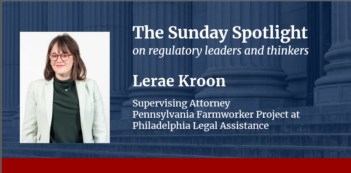
A new deregulatory measure would allow employers to keep tips received by their employees.
After you eat at a restaurant and leave a tip on the table, does the waiter or waitress who served you get to keep the tip? Most restaurant-goers in the United States probably believe so, but a recently proposed U.S. Department of Labor regulation would allow employers to keep all the tips left for their employees.
The proposed regulation, which would affect at least 1.3 million waiters, waitresses, and bartenders in the United States, would roll back an Obama-era regulation that required all tips to be returned to employees. The proposal would repeal this language and allow employers under certain circumstances to pocket the tips earned by employees.
What could the employer do with those tips? The Labor Department lists a number of possibilities, including that employers could lower prices, invest in capital improvements, provide benefits to workers, increase work hours, or hire additional workers.
Employers could also keep the tips to boost their own profits at the expense of their employees’ income. Even the Labor Department admits in its proposed rule that “some baseline workers could be harmed, due to lower overall compensation.”
The Labor Department primarily justifies its proposal by emphasizing that the rule change would also allow employers to expand tip pools, sharing the tips among a broader range of employees than which is allowed now. Under current law, employers create tip pools when they take all tips earned by employees throughout a night and redistribute them by giving employees a pre-determined share. At present, they may only pool tips among workers who are customarily tipped, such as waitstaff and bartenders. The Department now claims that, depending on how employers use the flexibility afforded them under the recent proposed rule, they might share tips among more workers, including employees like cooks and dishwashers who are not usually tipped. Doing so would “help decrease wage disparities between tipped and non-tipped workers,” asserts the Department.
The current limitations on tip-pooling apply regardless of how an employer meets its minimum wage obligations. Many employers currently take a tip credit, which allows them to count some portion of workers’ tips towards their hourly minimum wage. Others pay the full minimum wage up front and do not count tips as part of their minimum wage obligation. The Obama-era regulation clarified that, regardless of whether an employer paid the full minimum wage or took a tip credit, employers could not keep any of the tips for themselves and they could only pool tips among customarily tipped workers.
The proposed regulation would keep both limitations on tip pooling for employers who take the tip credit, but it would remove these limitations if the employer pays the full minimum wage. Employers could then pool tips among all employees, including managers, cooks, and dishwashers—or they could keep the tips for themselves. The new rule may cause employers to shift to paying the full minimum wage without a tip credit so they can legally take the tips earned by employees.
Some states do not allow employers to take tip credits or take tips from their employees. Those laws would still apply to employers in those states regardless of any change in the federal rule. But for the estimated 70 percent of tipped workers who do not live in states with such protections, the proposed rule could mean significant losses of income if employers change how they pay employees and then keep all the tips.
The Labor Department argues that allowing employers to increase profits by taking tips might benefit the economy and consumers. Yet the Department admits it “currently lacks data to quantify possible reallocations of tips through newly expanded tip pools.” It also did not attempt to estimate whether employers would keep tips or pool them, which is a key impact of the proposed regulation. Worker advocates argue the Department’s failure to conduct any quantitative analysis may be grounds for reversal during any litigation filed after the Department issues a final rule.
Employment law experts argue that the proposed regulation will harm workers. Organizations such as the Economic Policy Institute and the National Employment Law Project have already stated their opposition.
Heidi Shierholz, a Senior Economist and Director of Policy at the Economic Policy Institute, has argued that employers already frequently steal tips from workers and commit rampant wage theft. She states that “it seems obvious that when employers can legally pocket the tips earned by their employees, many will do so.”
The National Employment Law Project has stated that the new regulation will “rig the rules so employers can essentially steal earnings from tipped workers to subsidize the businesses’ low wage model.”
Consumers may also stop tipping altogether if the public learns that the tips they leave to reward good service are being kept by employers instead.
Several business-side organizations, including the National Restaurant Association and the Oregon Restaurant & Lodging Association, support the regulatory change. The National Restaurant Association’s executive director has stated that her organization “applauds the Department of Labor’s review of tip regulations.”
The Labor Department recently agreed to extend its period for the public to submit comments on the proposed rule to February 5, 2018.



